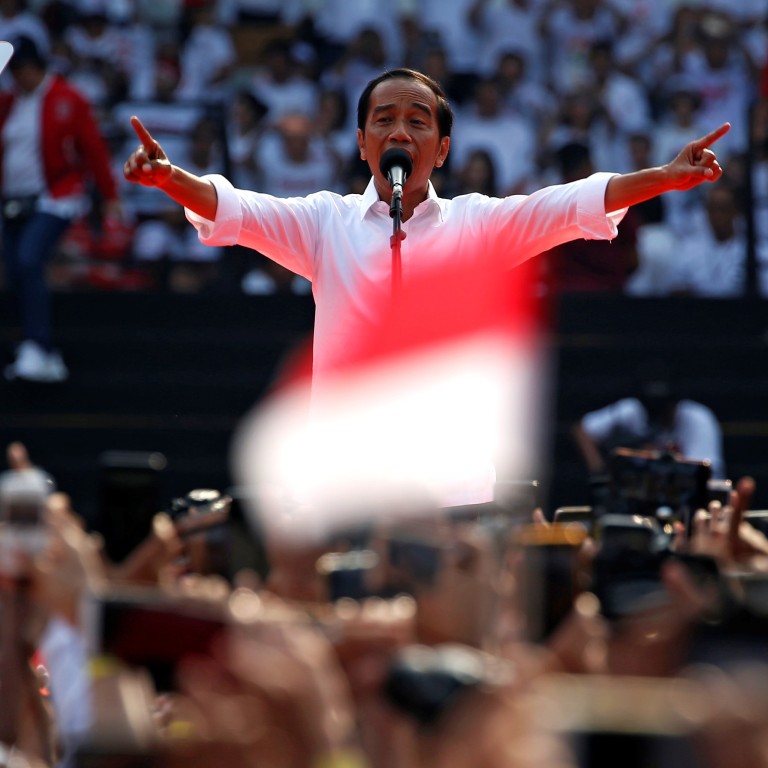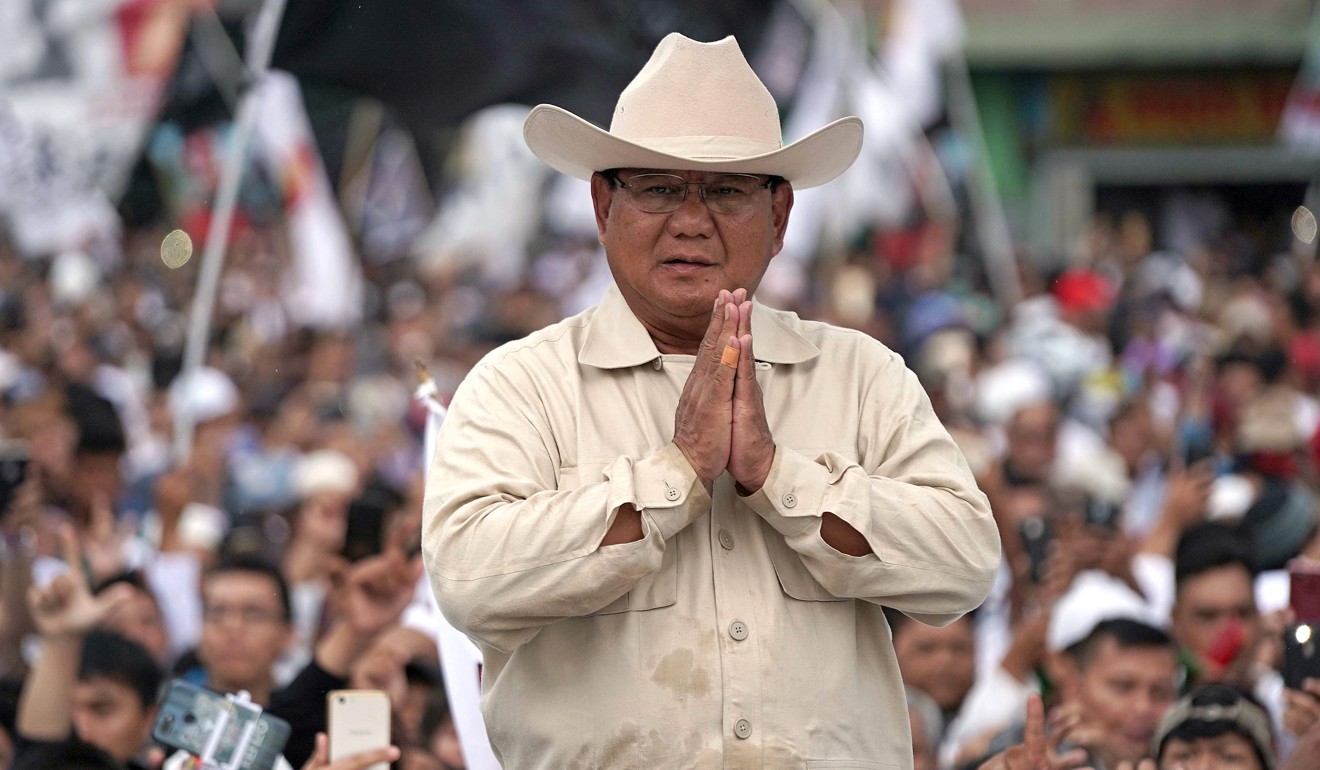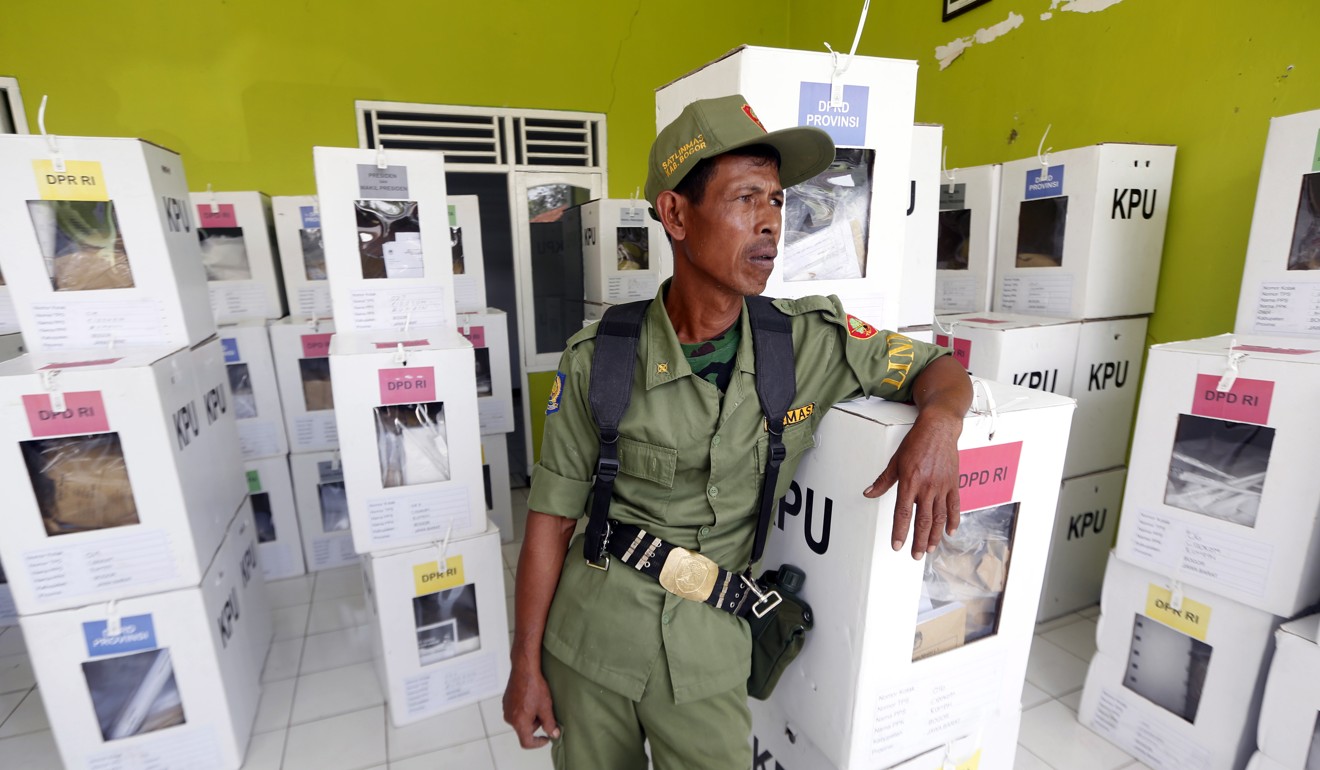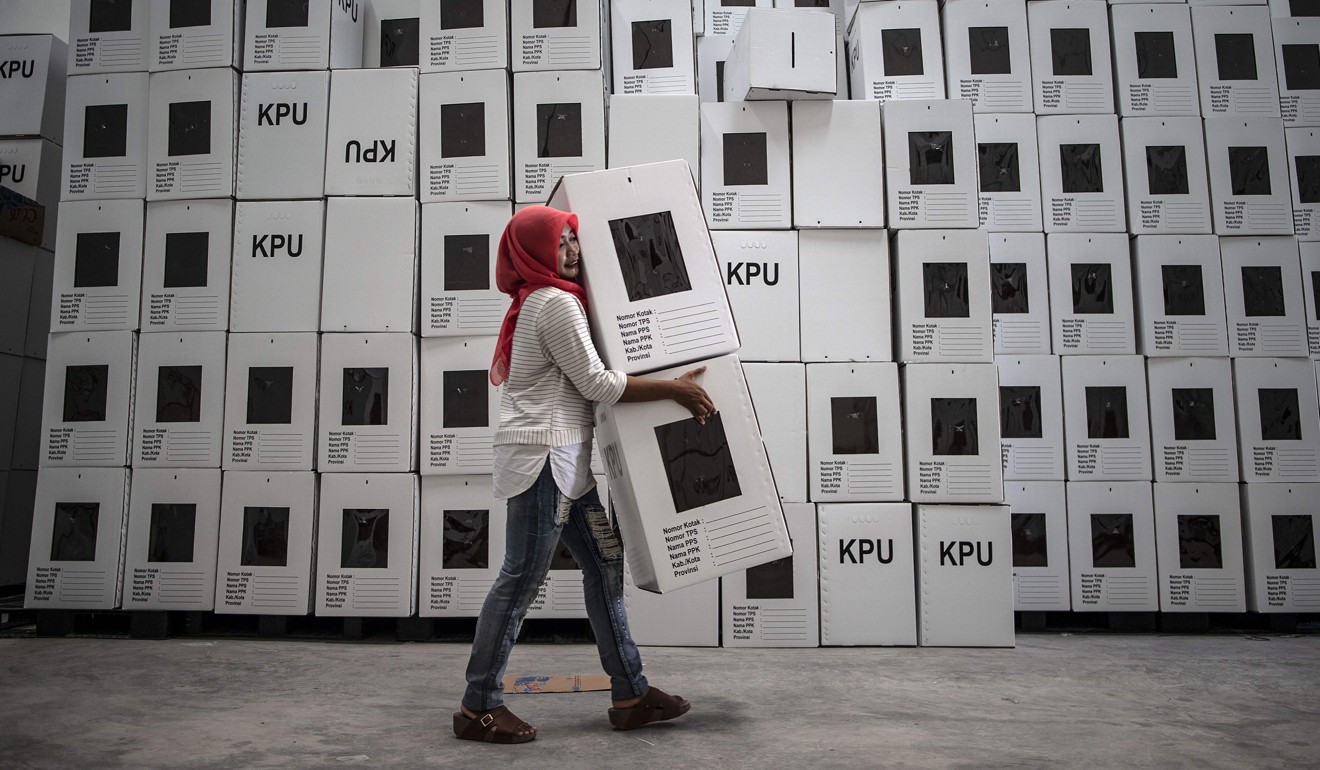
Indonesia election: Prabowo disputes quick count results to claim victory over Jokowi
- While independent pollsters suggest incumbent president Joko Widodo is leading his challenger by 8 to 9 percentage points, Prabowo Subianto says he has won 62 per cent of the vote
- Jokowi has not acknowledged his likely win, instead telling supporters to be patient and wait for official results
“I’m president to all of Indonesia, even to those who voted for [Jokowi],” he said in a late-night speech broadcast on television, where he kneeled and shouted Allahu Akbar (God is great) three times.
Several sets of quick count results showed Jokowi in the lead by between 8 and 9 percentage points, based on a sample of more than 90 per cent of ballots cast.
From youth voters to short-lived fears of golput, here are 5 takeaways from the Indonesian election
Earlier in the day, Prabowo told supporters outside his home that there had been attempts by pollsters to “steer public opinion” to think he had lost.
Addressing concerns his supporters would stage protests against the outcome, he said: “My fellow countrymen ... everyone should stay calm and remain unprovoked from committing anarchy.”
At a small cinema in central Jakarta, Widodo, popularly known as Jokowi, did not acknowledge his lead but told his supporters – who cheered and chanted his name – to be patient and wait for official results.
The Centre for Strategic and International Studies (CSIS) said Jokowi and his running mate Ma’ruf Amin would win 55.8 per cent of votes, with Prabowo and his running mate Sandiaga Uno getting 44.2 per cent.
Five other organisations – Poltracking Indonesia, Indikator, Charta Politka, Indo Barometer and Litbang Kompas – estimated Jokowi-Ma’ruf would get between 54 and 55 per cent of votes.
Indonesia election: who will win between Joko Widodo and Prabowo Subianto?
CSIS said about 80 per cent of the country’s 192.8 million voters cast their ballot on Wednesday, though Prabowo’s team cited irregularities including exit poll figures exceeding the number of ballots cast, missing polling stations in Palembang and polling stations opening later than the scheduled 7am.
About 40 organisations are authorised to release quick count results, which have proven reliable in past elections. But official results by the General Elections Commission will only be released in a few weeks.
According to CSIS, Widodo took the lead in fewer provinces – 20 out of 34 – this time compared to 23 in 2014. Prabowo is expected to win in West Java, Banten, North Sumatra, Riau, Aceh, and South Kalimantan.
A victory for Widodo, predicted by most survey organisations,would mean a continuation of the president’s focus on reforming the economy and boosting the livelihoods of rural and lower-income folk through social welfare programmes, as well as increasing the quality of labour.
Kandida Joweni, 29, who lives in Nabire regency, Papua, said she voted for Widodo in the hope his government would continue with its efforts “to bring more development such as infrastructure, and improving health and education services all over Papua”.

The Prabowo-Sandi pair had attacked Widodo’s management of the US$1 trillion economy – Southeast Asia’s largest – by pointing to its growing trade deficit, underemployment and failure to hit promised growth of 7 per cent a year.
Pop stars, model, prince’s ex-wife: meet the Indonesian election’s most colourful candidates
Paul Mumford, Asia director for Eurasia Group, told Bloomberg that Widodo might feel freer to form closer ties with China if he wins.
“A Prabowo victory would see relations with Beijing deteriorate, as he has repeatedly tried to whip up anti-China/Chinese sentiment during his campaign,” he said.
Political analyst Mahmud Syaltout said Jokowi would be a tougher president during his second term.
“It will be totally different from his first term where he needed to sit and negotiate with elites. He will need to show his muscle to stamp out corruption so it can be part of his legacy and he will push for more infrastructure development and reform state-owned enterprises,” he said.
This is former special forces general Prabowo’s third attempt at high office – in 2009, he was the running mate of presidential candidate Megawati Sukarnoputri, who is now Widodo’s political patron and chairwoman of the party supporting him.
In 2014, Prabowo lost to Widodo with about 46 per cent of votes and challenged the result but the Constitutional Court threw out the case.

Both sets of candidates have focused their attention on the two most populous islands of Java, where most of Indonesia’s 192 million voters live, and Sumatra, which is home to more than 1 in 5 of them.
Can Joko Widodo spend his way to re-election in Indonesia?
This year’s campaign has been driven by identity politics, with Muslim conservatives and hardliners mobilising support for the Prabowo-Sandiaga ticket, and insisting that Widodo is not Muslim enough. Some analysts believe such criticisms were behind Widodo’s choice of the cleric Ma’ruf as his running mate.
Alexander Arifianto, a research fellow from the S. Rajaratnam School of International Studies, said Ma’ruf was expected to take the lead in formulating policies on religion, especially those related to Islam.
“Ma’ruf will implement policies to benefit Islamic boarding schools as well as promoting a sharia economy.”

Fake news has also played a part, with hoaxes aiming to discredit Widodo’s government and cast aspersions on Prabowo’s integrity. False rumours spread on the internet have included a blog post shared hundreds of times that said China – Indonesia’s largest trading partner – would lend Southeast Asia’s largest economy money to fix damaged ballot boxes, and a heavily circulated doctored photo of men and women praying together at a Prabowo rally. Muslim men and women are traditionally supposed to pray separately.
Narrowing lead before Indonesia presidential vote nothing to fear for Joko Widodo, says spokesman
But the election – Indonesia’s fourth direct vote for president – took place peacefully as millions of citizens went to 809,000 polling stations across the archipelago’s 34 provinces to punch holes in ballot slips for their next leader and new legislators.
About 245,000 candidates from 16 political parties competed for more than 20,000 seats in national, regional and local parliaments.
Hamdan, a 35-year-old market trader in North Kalimantan, said he was happy the election was over.
“I have not seen voters this divided before. People were like fanatics in their choice of who to support and it made me worried things might get worse as the votes were being counted.”

